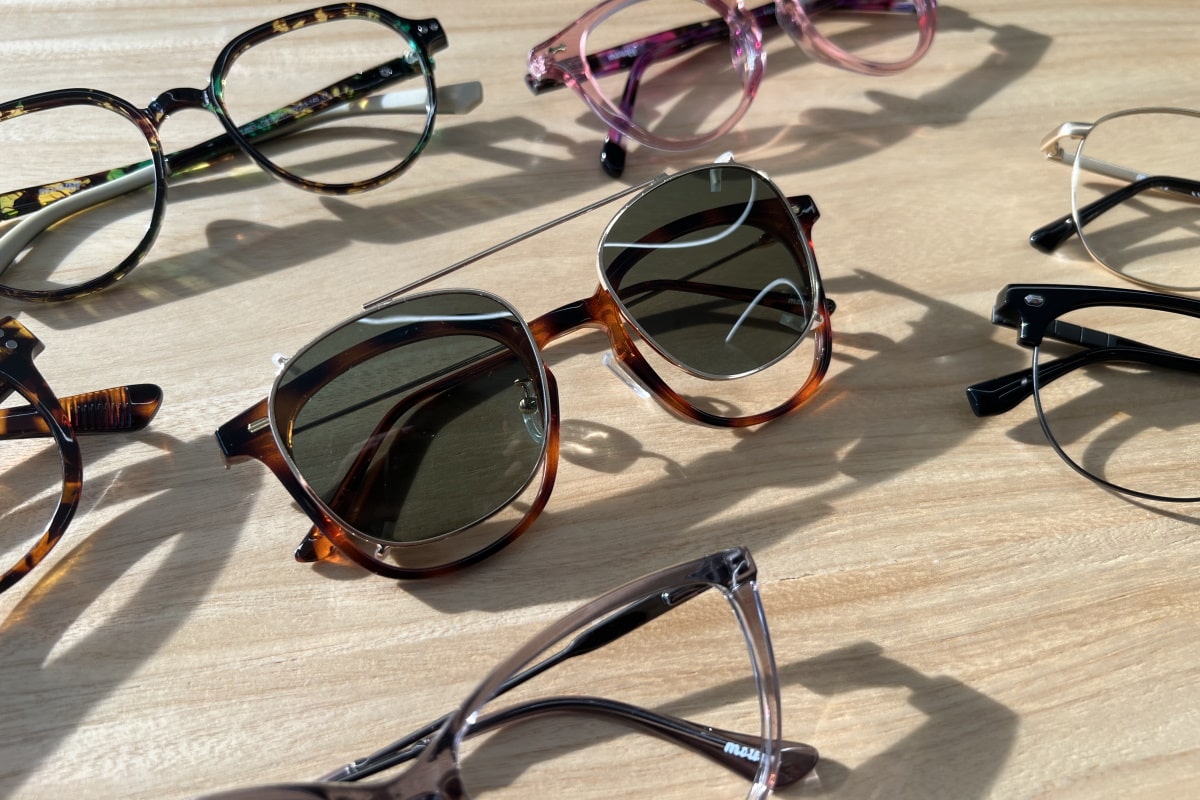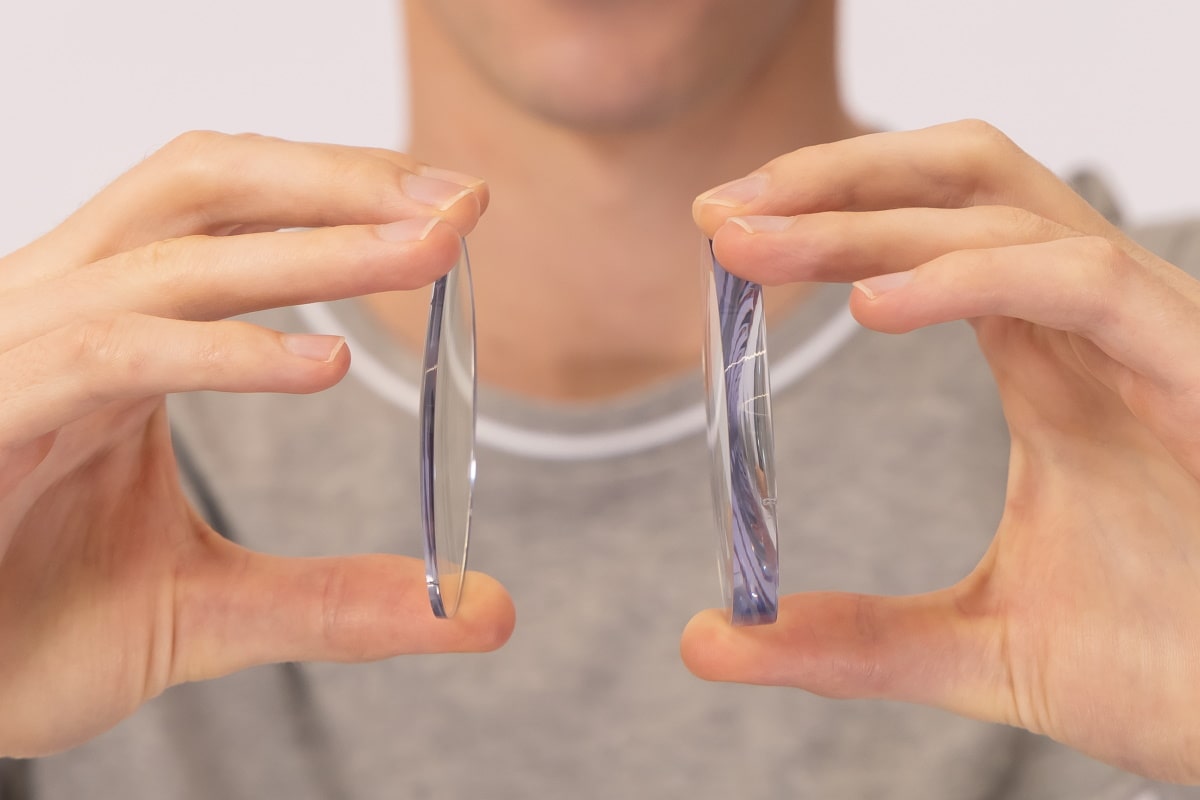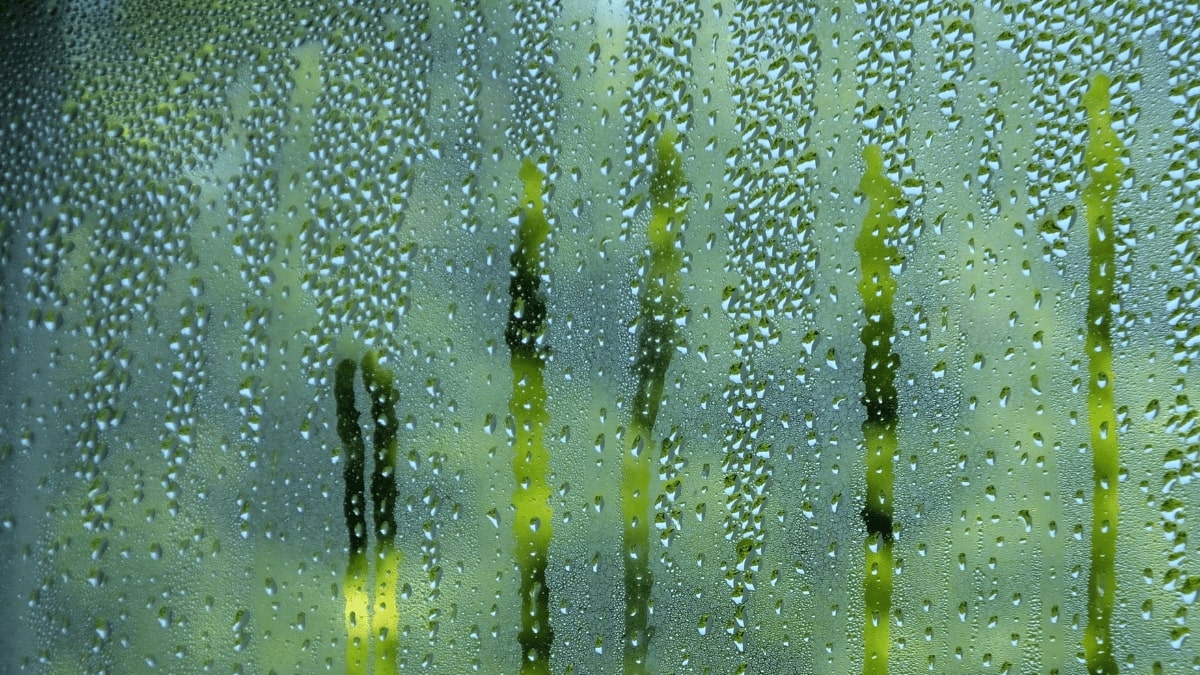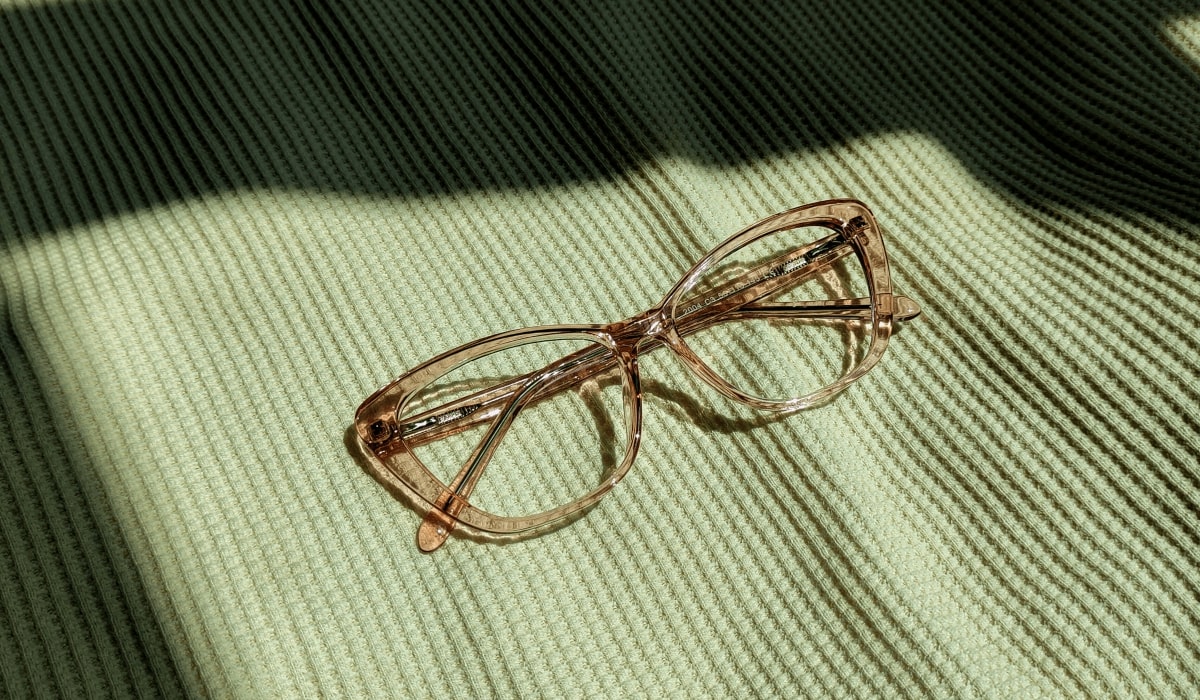5 Ways to Keep Your Glasses from Fogging Up (that Actually Work!)
It’s happened to every glasses wearer. Maybe it’s a particularly humid day, maybe you’re doing something strenuous – or maybe, you’ve just simply put a face mask on. Suddenly, your glasses fog up.
Whilst harmless, having your glasses fog up multiple times a day can be frustrating – especially if you’re out and about and are trying to avoid touching your face.
Well, the good news is that there’s a load of ways to avoid foggy glasses.
How to avoid foggy glasses
But why do my glasses fog up anyway?
In short – the fog on our glasses is caused by condensation.
Condensation occurs when water vapor (be it from your breath or from a humid environment) meets a cold surface like your glasses’ lenses. The vapor, being a gaseous matter, loses some of its internal thermal energy to the cold surface, transforming into the tiny liquid droplets that create the fog you see on your glasses. It’s the same science behind the fog on your windshield or morning dew on grass during early mornings.
In time, the tiny droplets eventually regain enough thermal energy and evaporate from your glasses. But that doesn’t make foggy glasses any less annoying!
Now that you know why your glasses fog up, it’s time to explore how we can stop it. Here’s a list of tricks you might want to use:
Short-term solutions to stop your glasses from fogging up
1. Make sure your mask is properly positioned (if you’re wearing one)
If your glasses only fog up when you’re wearing a mask, chances are you can fix the issue by ensuring your mask is in the right position.
The first thing to check is if the mask fits you well. If there are gaps between the mask and your cheeks and nose bridge, try bending the nose bridge wire to fit around your face better, allowing less vapor to escape from the top of the mask.
If that doesn’t work, there’s a possibility that your mask could be too big for your face. To remedy this, try switching your mask out for a different size that fits you better.
Another tip is to make sure that your glasses nose pads are positioned over your mask and not under them. This way, your mask can be secured tighter, while also lessening the chances of your lenses fogging up.
2. Wash your glasses with dish soap – and leave them to dry!
Condensation can cling onto all kinds of dirt, dust and scratches on the surface of your glasses, so make sure you clean them regularly! If you’re not sure how to do so, here’s an in-depth guide on cleaning them properly. In short however, washing them gently with dishwashing liquid helps to keep condensation to a minimum.
It’s also been said that if you leave your glasses to dry instead of wiping them dry, you’ll be able to decrease fogging to a certain extent. The reasoning behind this is that the water leaves behind a film that reduces water tension, preventing moisture from condensing.
3. Use anti-fog sprays and wipes
If all else fails, you can always make use of anti-fog sprays and wipes.
However, be careful to check the kinds of ingredients that are being used in the anti-fog solutions. If they’re not specifically advertised for glasses, they may contain substances that could scratch or harm the coating on your lenses, such as rubbing alcohol and acid. Another reason to check the ingredients in these solutions is because they may also contain substances harmful to your skin and eyes.
If you’re unsure where you could start looking for anti-fog sprays, checking out reviews by trusted sites or verified customers online is always the best first step to making an informative decision.
Long term fixes for foggy glasses
4. Look for lenses made from anti-fog materials
If you want to get rid of the problem for good, you could talk to your optometrist about replacing your lenses with lenses made from materials such as polycarbonate and plastic. Both of these materials may be able to resist fogging better than the average lenses.
Besides everyday eyewear however, anti-fogging technology also works on more specialized eyewear, from sunglasses to ski or swimming goggles. It’s important to note that athletes with foggy goggles may put themselves and others around them at risk of injury, as the fog could hinder their vision, causing careless mistakes.
As with anti-fog sprays and wipes, doing your own research before making a purchase could help you find something that fits your needs and preferences.
5. Adjust your frames
Another long-term solution to consider would be to adjust the frames of your glasses. This is so that the glasses sit further away from your face and nose, making it easier for vapor to disperse before it reaches your lenses, thus avoiding the frustrating fog.
If your glasses fog up frequently, it could be a phenomenon caused by a pair of ill-fitting spectacles, as condensation occurs easier when there is not enough space between your glasses and your face.
Talking to your optometrist would help you determine if you would need a new set of glasses or if your current pair might be adjustable.
2 ‘solutions’ you need to avoid!
Last but not least, there are also a couple of things to avoid when trying to keep your glasses from fogging up.
1. DON’T use household cleaners on your glasses
Many household cleaners (besides dishwashing liquid) can damage or, at the very least, scratch your lenses. Cleaners like ammonia, bleach, surface cleaning sprays, and more should never be used on your glasses – and let’s not even mention how harmful they can be to your skin and eyes if not cleaned off properly.
Opt instead for certified glasses-safe cleansers or dishwashing liquid. Here’s our favorite DIY homemade glasses cleaner.
2. DON’T risk your glasses with homemade remedies
As you do your research, you might find lots of homemade remedies for avoiding foggy glasses. Some of the more common ones might include using toothpaste, raw potatoes or shaving cream on your glasses.
However, the truth is that not only do many of these remedies not work at all, they might end up damaging your glasses instead.
For instance, some brands of toothpaste may contain tiny grainy particles that could scratch your lenses. Different kinds of shaving creams can also contain harsh ingredients unsuitable for cleaning your glasses.
Given that many glasses now have multifunctional coatings on their lenses (for example, to make them more durable or waterproof), these rough substances can do serious damage to your glasses!
Enjoy your fog-free glasses!
Even though foggy glasses have plagued many of us glasses wearers for ages, with the right tools and tricks, you can say goodbye to this little annoyance for the rest of your life.
We hope that you’ve enjoyed our article and that these little tips have helped you to care for your glasses better!

Written by:
Pixie Tan













